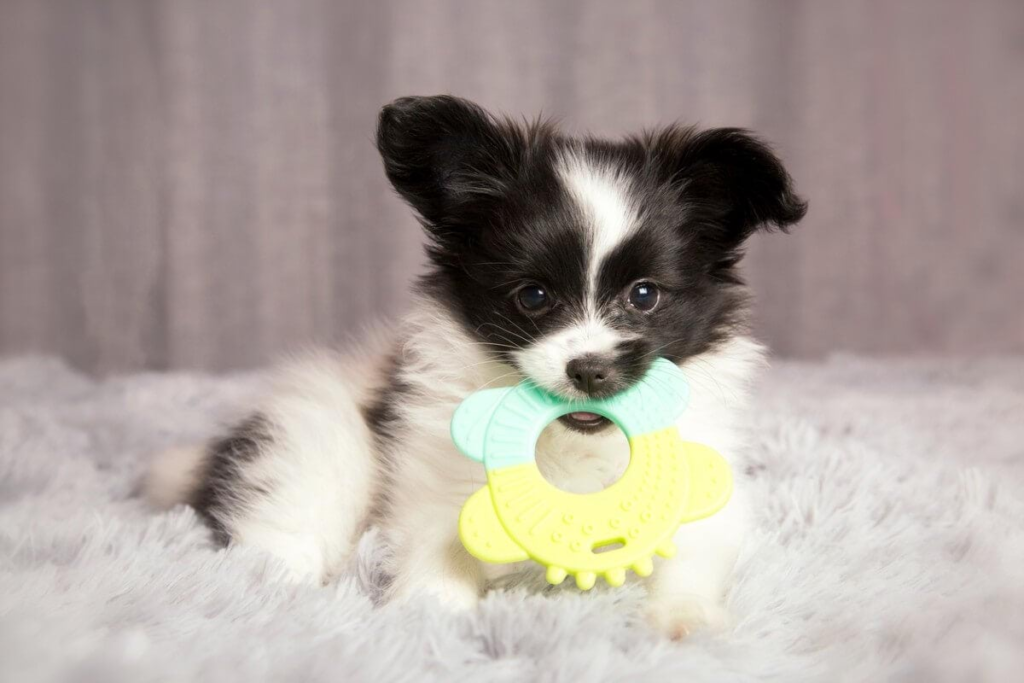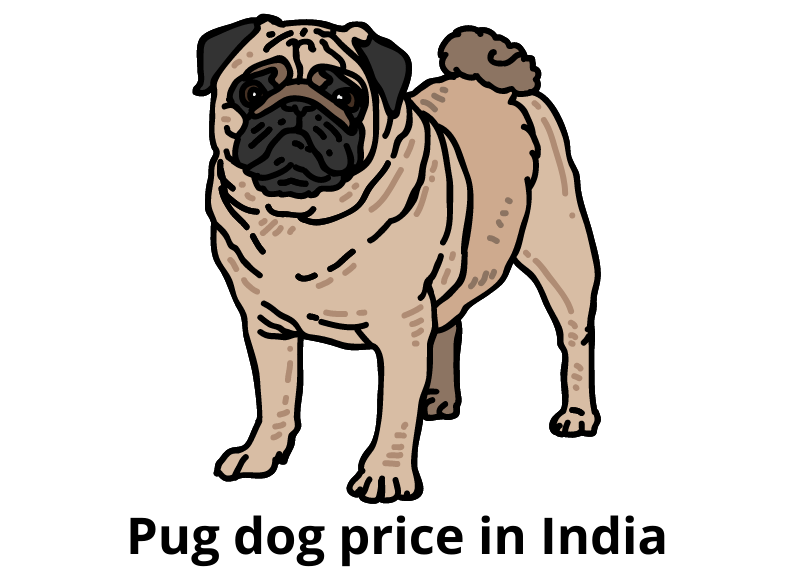Puppies, like human newborns, go through a painful teething stage during which they will chew on everything and anything they can get their hands on to try to calm their hurting mouths. When your puppy is two months old, you’ll notice that he or she is teething.

So, what can you anticipate from your dog while he or she is teething? Let’s go through the signs, timetable, and ways to make your teething dog feel better.
Table of Contents
When Do Pups’ Teeth Fall Out?
Puppies lose their baby teeth at the age of 3-4 months. All of your puppy’s baby teeth should fall out by the time he or she is six months old. The premolars are usually the last to fall out.
You might not even notice your puppy’s baby teeth falling out since they are so little. While playing or eating, some pups swallow their baby teeth. But don’t worry, it won’t damage them in any way. You may also detect a small amount of blood in your mouth, which is normal. During this period you should take extra care of your puppy. That’s why experts suggest you take proper knowledge about puppy teething, and everything you need to know about it.

When Do Puppies Begin to Teeth?
Puppies are born without teeth, so they begin teething at a young age. By the age of two weeks, their baby teeth are starting to develop, and by the age of eight weeks, they should have all of their teeth.
Your puppy’s deciduous teeth, also known as milk teeth or baby teeth, will begin to fall out when he or she is eight weeks old, which is when the majority of pups leave for their forever homes. Adult teeth will begin to appear after your puppy is 10 to 12 weeks old. This is inconvenient, and it will take a few weeks for all of their teeth to emerge for teething to be completed.
Here are three things you can do to help to teethe the go as smoothly as possible for both you and your dog.
- Provide special teething snacks to help calm those aching gums.
- Give your puppy plenty of things to do to keep them from getting teething – pups like exploring, playing, and socializing.
- Providing mental stimulation is important since puppies’ developing brains enjoy puzzle toys and brain games.
These will not only keep them engaged, but will also exhaust them, allowing them to take a good puppy sleep.
The Best Teething Toys for Puppies

Soft and flexible teething toys are a good choice. It’s very difficult to offer your pet a toy that you can’t bend or flex. If you feed them anything too firm, it might break their teeth as they grow. Avoid chewing on bones, antlers, or buffalo horns until they have their adult teeth. Your puppy may experience discomfort as a result of a broken tooth and may need to be removed under anaesthesia.
Give your pet these toys to be safe:
- Toys made with rope
- Plush toys
- Toys made of rubber
Puppy teething rings and even puppy pacifiers are available. Many of them feature nubs that may be used to massage sore gums. Our Dental Dailies assist older dogs to maintain their teeth clean and healthy as they develop. They help decrease plaque and tartar buildup — as well as foul breath – since they’re star-shaped and composed of pumice.
What Is the Duration of Puppy Teething?

Teething in puppies starts early in their lives and lasts for several months. When it comes to teething, puppies start teething at the age of 10 to 12 weeks, when their adult teeth sprout and push the baby teeth out. Your puppy will not have all of his adult teeth until he or she is around 6 months old.
Teething usually lasts around four months for most puppies, although certain breeds may take a bit longer.
Your puppy may have difficulty shedding all of their baby teeth, therefore it’s critical to examine their mouth frequently. You should inform your veterinarian if they appear to have a second set of teeth or if their teeth appear to be crowded. If a puppy does not lose all of its baby teeth, the veterinarian may need to extract them.
Most importantly, exercise patience with your pet. Teething is painful, and they’re still adjusting to their new surroundings and learning what they should and shouldn’t do.
Useful links:
Golden Retriever Price In India | Labrador Dog Price in India | Siberian Husky Price In India
Rottweiler Price | Beagle Price In India | Great Dane price in India
Lhasa Apso Price in India | Rottweiler vs Pitbull | Pomeranian price
Rampur Greyhound | Chihuahua price in India | Grey Husky






